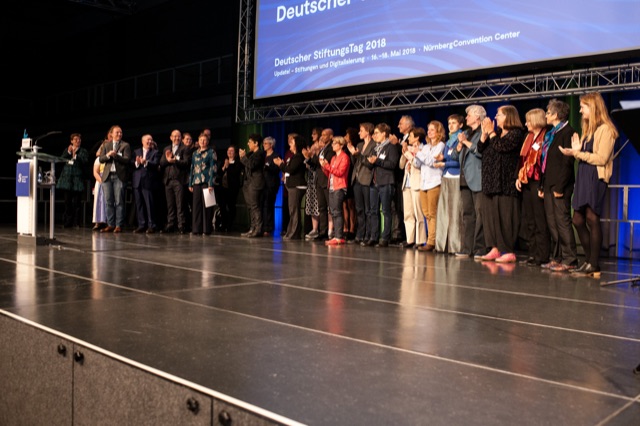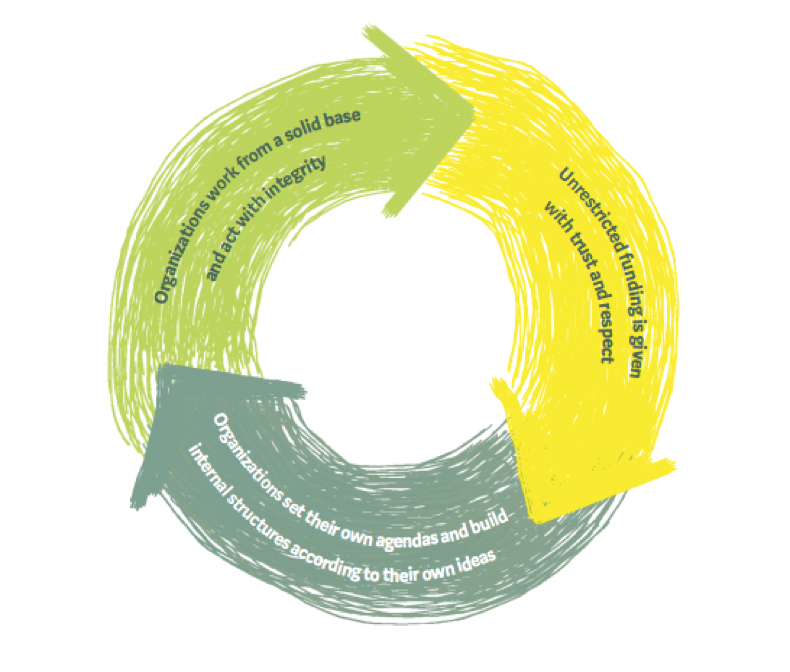
Photo: PxHere
There has been a lot of talk recently about decolonizing wealth and how philanthropy keeps repeating patterns that are rooted in oppression. If we want philanthropy that is not merely transactional but transformative, we need to pass on the decision-making power along with the money. Otherwise we will be stuck in what Peter Buffet called “Philanthropic Colonialism”: where donors keep the agenda setting power to themselves. When money is given in re-granting for organisations that have a strong participatory approach, or in direct grants to organisations led by their constituency, it can transform the power that money normally brings to the few into power for the many.
For ten years, our organisation, Dreilinden, has been funding movements of LGBTIQ people worldwide. Last year we reflected on our work by contracting a consultant to survey 40 grantees, companies in which Dreilinden invests, intermediaries who partner with us, and fellow philanthropists about how they perceived the organisation’s work. The picture we saw emerge from this feedback was a model of philanthropy that resulted in power sharing.
However, we realize that it requires a certain amount of risk tolerance to let go of control, and we worked on changing our understanding of risk. We define risk in philanthropy as the risk of not reaching maximum social impact. Reaching maximum social impact implies taking risks. Grant makers are often discouraged by their institutions to take risks, for reasons that have to do with reputation and institutional dynamics. This tendency is deeply embedded and tenacious, because it is not made transparent. There’s no way around an analysis, and good internal communication, about which types of risk are tolerable or even desirable, and which are particularly dangerous to the institution. For example, what exactly is the role of reputational risk? Might a reputation as a real change maker off-set some of the risk of failing? Looking at a particular grant: what specific risks lie in this project, how might they be pro-actively taken care of?
A strong focus on long-term goals can help to develop a higher risk tolerance in grantmaking. In an internal assessment, Dreilinden considers three kinds of risks before making a grant: the risk of not having the intended impact, the risk of not making this grant, and institutional and reputational risks for both the activist organisation and Dreilinden. These different aspects are weighed and the assessment is shared with the grantee, in some cases even developed together. The discussion of outcomes and impact is also done jointly with the grantee, mostly in conversations. The perception of what worked and what did not that the grantee has is central here.
Our experience shows that taking risks brings us closer to fulfilling our mission: over 80% of the organisations we funded reported that with Dreilinden’s support they could do pioneering work that had not been done before, like publishing the first ever book in Germany on intersex human rights written by an intersex activist. In addition, 82% said they achieved power shifts in their communities. One of them is the the Astraea Lesbian Foundation for Justice in New York. Ise Bosch was the founding donor for Astraea’s International Fund for Sexual Minorities that has until now awarded nearly $19 million internationally to more than 500 groups in 99 countries. In a recent survey among Astraea’s grantees, 91% of Spanish-speaking respondents said that Astraea’s funding enabled them to do things that were important to them but that other funders did not want to support.

LGBTIQ community on stage at the award ceremony in 2018
At the root of this approach is trust in the ability of partners to make the right decisions at the right time, trust in the solutions communities create for themselves, and trust in donors’ ablity to learn. We put this trust into practice by consistently minimizing bureaucracy, and giving 90% of our grants as unrestricted long term funding. Bureaucracy creeps into any institution, so minimizing it needs to be a top priority. Institutions need to be courageous and question their current mode of working. For many groups, funding comes as restricted project support. Unrestricted money, on the other hand, allows organisations to do what they really want to do. This approach requires trust in the capacities of the organisations. Trust can be developed by emphasizing the relationship part—getting to know each other and building a strong base together. Phone calls and personal meetings work better for this than e-mail and forms. Spending social time and sharing personal stories with a number of community activists also helps to build relationships with others in their networks.
The results we see are conclusive: 93% of our partners report that they have experienced institutional strengthening that can still be felt. For some organisations—like Iranti, a media advocacy organisazion for LTI people based in Johannesburg—it was the first funding that came in. For others it provided core stability over years, like for the Initiative for Strategic Litigation in Africa (ISLA) that organizes networks of lawyers working on women’s human rights and LGBTIQ issues. Others were supported in creating new programs, like Astraea.
We see a positive self-enforcing cycle: unrestricted funding given with trust and respect leads to organisations setting their own agendas and building internal structures according to their own ideas. This then leads to organisations working from a solid base and acting with integrity. In turn, more donors are willing to give unrestricted funding and other long-term funding options. This was the case with ISLA, where a donor group was created that works together to ensure the sustainability of the organisation by giving joint operational support.

The Nurturing Cycle: a win-win model for non-profits and funders. Drawing by by Detlev Pusch.
The result is a win-win situation for activists and donors alike. The leadership of Astraea says they have been able to facilitate flexible funding from other donors because they could be consistent and act with integrity on the basis of Dreilinden’s core grants. Some German foundations are currently starting a joint initiative to encourage more donors to move away from restricted project funding to more unrestricted and core support.
Another aspect to sharing power is that money brings access and can shift power dynamics. People of wealth are often at the decision making tables and have access to spaces that people with less privilege do not have. For example, when Ise received the award of the Association of German Foundation in 2018, she invited activists and their supporters on stage as well, who may otherwise not have had this public recognition. Putting privilege to good use can be complex, but when done right the effects can be powerful.
Indeed, the inherent conflict stays with us: how can we fight discrimination from a position of privilege? To reach a level of equality, given that one side has more choice than the other, the spirit of solidarity must be strong: we will win this, or lose this, together. It is about shifting the quality of the money. Critical self-ownership is important—to embrace the power that is available to oneself, but to not accept the exclusion of others.
